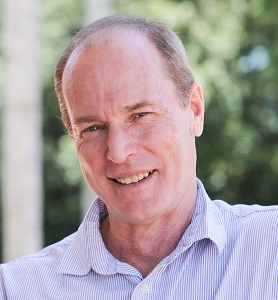Brisbane Psychotherapist and Accredited Mental Health Social Worker, Dr David Ward, provides professional supervision for counsellors, psychologists and social workers. Below he has supplied some information to help you determine if he would be a good fit for you.
My Background
I have been working with other clinicians in a supervisory relationship for almost 20 years now. While I have a Clinical Social Work background, I have offered clinical supervision to psychologists, counsellors, youth workers and nurses, and loved every minute of it (almost!). I have worked with a range of mental health professionals in acute, extended treatment and community settings. This has given me a breadth and depth to my supervision and I am equally happy in discussing a case involving a marital affair, as I would in discussing dissociative episodes in a traumatised client.
The areas I have extensive experience in are family work, trauma work and mental health generally (especially CYMHS). I take a systems approach, and am very eclectic with my ‘therapy toolbox’. I particularly like EMDR and Schema Therapy. I have also been trained in DBT, CBT, and of course Family and Couple Therapy (love the Structural and Bowenian family therapy schools).
I also do my best to make my supervision affordable, realising that sometimes, the life of a therapist or counsellor can be isolating. I myself am a “wounded healer”; a guide, not a guru. After my clients, my supervisees have taught me the most about myself as a person, and as a therapist. I find that despite the differences in the professional background of my supervisees, the themes and stresses of what is brought to supervision are very consistent:
Organisational burnout
I sometimes tell my supervisees in a cheeky but serious way, that sometimes the greatest blockage to you doing your work, is the organisation you work for! Why is this so? Because in this risk-averse age, many organisations cope with their anxiety via more and more bureaucratic paperwork and procedures that drain the clinician emotionally and professionally. In the end they leave, not because of the work, but because of the organisation.
Clinical disillusionment
By this I mean that when the practitioner originally started their career, they had high hopes for making changes in people’s lives. Over a period of time, they come to realise that, (to use my favourite saying), “people come to therapy to feel better; not to change”. While some do want change, many do not want to pay a price (emotionally or financially) for their healing. The result? Clinicians who are left scratching their head wondering what they are doing wrong – when in fact they are doing everything right!
Clinical guidance
Obviously the core area of supervision is to answer the question, “What on earth do I do with this client?” After all is said and done, we want to help the person in our office and sometimes we struggle as to where to start, and even experienced therapists go off track. Therapy (unlike the literature we read!) can be messy, draining, confusing and sometimes scary. As a supervisor I am mindful of this human element, and will do my best to be available, teachable and containing.
Therapists have “stuff” too!
Over the years I have met many committed and skilled therapists who have confided in me their own woundedness and its potential impact on their clinical work. I see this as almost sacred ground. To reveal yourself like that takes courage. Whilst supervision is not therapy, I do believe strongly that it should be therapeutic. I can recall some really poor supervision I have received over the years, as well as some great supervision. The latter involved individuals who, despite my stupidity and anxieties, have guided me into a corrective emotional experience that has allowed me to explore how my own stuff is emerging in my clinical work. In response, I have tried to emulate that compassion, patience and guidance to my own supervisees. Subsequently, I take confidentiality very seriously.
The goodness-of-fit between supervisor and supervisee needs to be ‘good enough’. If you would like to ask me any questions at all about my supervision services, please contact me at M1 Psychology and I’d be more than happy to chat.
 Author: Dr David Ward, BSocWk, BA., Grad Dip (Couple Thpy), M.Couns., MPhil., PhD.
Author: Dr David Ward, BSocWk, BA., Grad Dip (Couple Thpy), M.Couns., MPhil., PhD.
Dr David Ward is a psychotherapist with over 25 years’ experience, providing therapy to adults, adolescents, children, couples, and families. His areas of professional interest include the use of EMDR therapy to help with recovery from domestic violence, child abuse, PTSD, depression and anxiety; family therapy; and working with victims of spiritual and ritual abuse.
To make an appointment try Online Booking. Alternatively, you can call M1 Psychology Loganholme on (07) 3067 9129 or Vision Psychology Wishart on (07) 3088 5422.